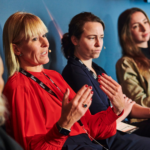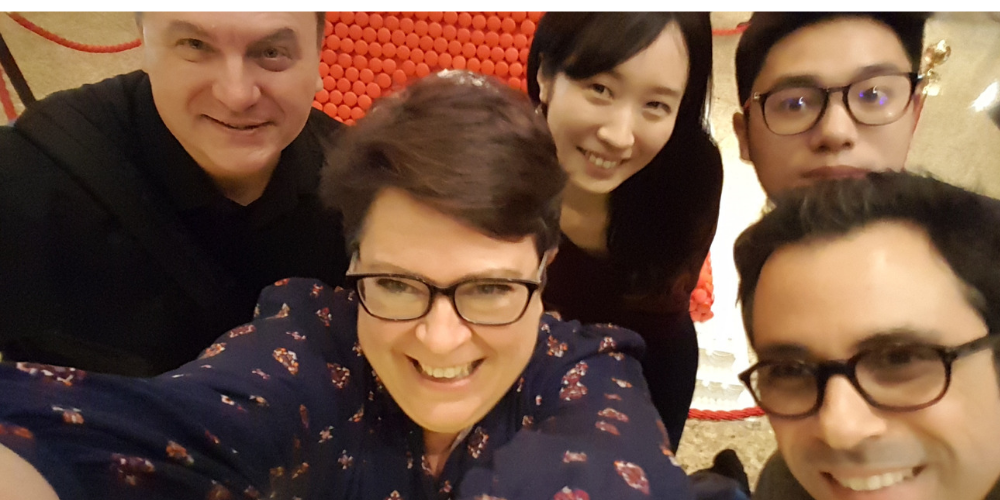
Olympic parks have had a chequered history throughout the modern games. Many have been left to rot, some have almost bankrupted their host nations, while others are built on, enhanced and expanded. I am working from a co-working space, housed within the former Press Centre of the 2012 London Summer Games as I type. The Olympics are a chance for a host city to showcase their promise and to welcome visitors and amateur (and not-so-amateur, let’s be honest) athletes for two weeks of competition, awards and fun.
The first time I visited Tokyo (the first time I was ever in Japan) was in 2010. London was two years away from hosting the 2012 Summer Games; Tokyo was awash with signage promoting their bid to hold the 2020 Olympic celebrations – a competition they would later win. If it were not for the outbreak of World War II (causing the 1940 Games to be moved to Helsinki, then later cancelled) London and Tokyo would be the only two global cities to ever host the Summer Olympics three times.
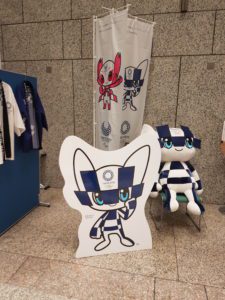 This November, I had a chance to visit Tokyo again – hosted by the metropolitan government – two years before the world will turn its gaze towards the Asian capital. Japan knows the Olympics are more than just sporting competitions and medal ceremonies – the spectacle is a chance for the world to view the city in its best light – friendly, open, welcoming and innovative. It was under this banner that our little group was invited to Tokyo.
This November, I had a chance to visit Tokyo again – hosted by the metropolitan government – two years before the world will turn its gaze towards the Asian capital. Japan knows the Olympics are more than just sporting competitions and medal ceremonies – the spectacle is a chance for the world to view the city in its best light – friendly, open, welcoming and innovative. It was under this banner that our little group was invited to Tokyo.
A Frenchman, an American, a young Chinese man and a, well an American (representing the UK) walk into a FinTech lab in Tokyo…
…what did we see?
The British have humour, the Americans friendliness, the French conversation … think of every stereotype you have of Japan, chances are the Japanese are well aware of them. For a capital city with over 15 million people – Tokyo is astonishingly clean. You could eat your lunch off a side street around the corner from Shibuya Crossing – Japan’s way busier and more crowded answer to Times Square or Piccadilly Circus. Every car on the street looks like it just rolled off the assembly line. Schedules and timelines are respected – and the famed Shinkansen bullet train does indeed run on time – down to the very second. Japanese people are very polite, well-mannered and helpful. As a woman, who often travels alone and finds herself walking unfamiliar streets in cities all over the world – a walk through the back alleys of Tokyo might find you lost, but it won’t find you afraid. Japan has one of the lowest crime rates in the world.
However, those characteristics that made Japan such as powerhouse in manufacturing and building automobiles in the 1960s, 70s and 80s – dedication, procedure, consistency, and an adherence to set rules – doesn’t lend itself to the new digital world that rewards flexibility, rule breaking and the embrace of failure as a tool for learning. That combined with an ageing population (27% of Japan is over the age of 65 – the highest percentage in the world) a low birth rate and low levels of immigration – the nation is facing an innovation challenge.
In 1964, the last time Tokyo hosted the Olympics, the country unveiled the Shinkansen, the world’s first high speed rail line. For 2020, Takuya Hirai, the minister of state for Information Technology, Science, Technology and Innovation, Space Strategy and Intellectual Property Strategy has said the goal is to introduce fully autonomous cars onto the road.
However, I am getting ahead of the plans Tokyo has for itself and describing this trip itself. An international group, which included Bradley Leimer, Co-Founder, Unconventional Ventures, Michel Levy Provençal, Co-Founder, Boma Global and Jingyu Wang of chief writer at 36kr, as well as myself – we were led on a four-day trip around the myriad of individuals, companies, startups, government agencies and organisations that would help us shed light on Japan’s fledgling innovation industry.
So, what did a Frenchman, two Americans, and a Chinese journalist see when they embarked on a familiarisation trip to Japan? 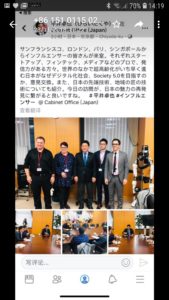
Our journey throughout Tokyo was broken down into three themes – Understanding an ‘Open’ Tokyo, Understanding an ‘Innovative’ Tokyo and Understanding ‘Startup Friendly’ Tokyo. Each visit within those themes presented varied experiences. The magic of an afternoon spent at a digital art collective, contrasted with a perfunctory introduction with the metropolitan government. An honest and enlightening chat with an experienced entrepreneur shed light on the challenges and journeys the startups, whom we had seen demo the day before, could expect if they chose to expand into Japan. A visit to a government minister brought all of these experiences together into one mosaic of planning and strategy and hope – a promise that Tokyo and Japan itself would grow into a safer, more diverse and smarter nation.
 Japan, with its capital leading the way, was a nation that was attempting to disrupt itself.
Japan, with its capital leading the way, was a nation that was attempting to disrupt itself.
Our visits to ‘Open’ Tokyo saw us at the innovation lab of Mizuho Bank and the innovation departments of ANA Airlines as well as gather for a cosy chat with Peter Haslebacher, a consultant and entrepreneur who had supported Insurtech startup, Shift Technologies enter the Japanese market. The visit to Mizuho’s Finolab felt familiar. In my travels I have visited many of these such labs run by banks. From the layout of the open plan, co-working space-styled office, to the relaxed dress code of the ‘bankers’ – even the presence of a friendly robot dog – felt every bit what a global bank would set up in an effort to embrace FinTech and disrupt its business. Mizuho was no exception.
At Japanese airline ANA, we had fun with virtual reality headsets, which allowed us to roam through a digital Tokyo. We traced the company’s evolution from its origins as Nippon Helicopter to challenger airline.
However, as any seasoned startup entrepreneur knows – the hard work is not seen in the presentations, the PR and the playtime. It is only through acknowledging and embracing the challenges – understanding the lessons learned in failure – that true innovation can flourish. 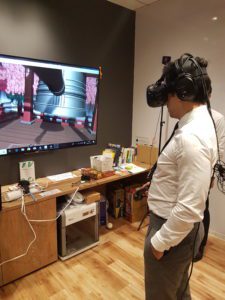
Peter Haslebacher, who supports start-ups in the InsurTech space in APAC and Oceania, describes Japan as a ‘difficult market’ to enter, but not impossible. With Japan being the second largest global market for insurance, behind the USA, the country seems a perfect fit for InsurTech startups and growth companies to expand into. What makes Japan difficult, says Haslebacher, is that it is not used to taking risks. Japan wants to do business with companies that have already achieved traction, that have sold to big name clients and have a clear and mature product offering. That traditional mind set can present barriers to startups who are looking to test and pivot on market fit. Haslebacher advises that companies understand this market before entering Japan.
It also makes it difficult for new market entrants to recruit new talent as many job seekers default to large, well-known corporations, rather than take a risk and gain employment at a startup. However, he insists: “If you succeed in Japan, you can succeed anywhere.”
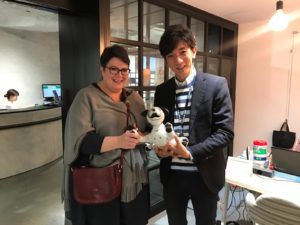 However, that traditional mind set is being challenged by many in Japan, currently.
However, that traditional mind set is being challenged by many in Japan, currently.
Our visits to ‘Innovation Tokyo’ shed light on the way companies, collectives and universities were changing and challenging the Japanese status quo.
Dr. Shigeo Kagami, professor, general manager – innovation and entrepreneurship at the University of Tokyo outlined how universities in Japan were positioning themselves to become incubators of entrepreneurs and startups. Using American universities, such as Stanford, as inspiration Dr. Kagami boasted that over 245 startups had been founded at the University of Tokyo in 2017 – a number that has been steadily rising since 2008.
In addition to a demonstration of cargo robots that could work in warehouses and a glimpse of their automatous vehicles, Tokyo-based ZMP explained, in simple terms, the strategies they were putting in place to create a more open and innovative company. One of the first changes they made was to remove the requirement that new hires had to speak Japanese. (Although support with language classes is offered to any recruit) The removal of that requirement opened the talent pool for ZMP, which already considered itself an international company.
We did get a demonstration of a robotic cargo trolley at ZMP, and visited their fleet of Robocars. While we didn’t get a ride in the cars, we did get a picture with them instead. 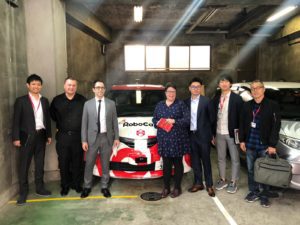
However, one thing Tokyo is known for and is in no rush to disrupt, is it embrace of the whimsical, magical and slightly absurd. I could wax lyrical about how humans impact and interact with technology and how that was showcased by the varied and hypnotic art installations we saw during an  afternoon at digital art collective Team Lab – but even I lack the words. As I watched an orchid grow inside my warm cup of Japanese tea and watched a school of multi-coloured fish swim around my bare legs as I waded through water, I realised this was the closest I would come to being inside a film produced by Studio Ghibli. If TeamLab visits your city – just buy a ticket and go.
afternoon at digital art collective Team Lab – but even I lack the words. As I watched an orchid grow inside my warm cup of Japanese tea and watched a school of multi-coloured fish swim around my bare legs as I waded through water, I realised this was the closest I would come to being inside a film produced by Studio Ghibli. If TeamLab visits your city – just buy a ticket and go.
Our third set of stops on our world wind tour of Tokyo focused on startups and how to make Tokyo a friendly city for new companies to grow and expand.
A visit to the Tokyo Metropolitan Government, saw a lobby filled with photos promoting autumn foliage for tourists and statues of the Olympic and Paralympic mascots. But a cosy chat within the offices of WiL or World Innovation Lab, an investment and consulting firm that works with startups and corporates, would be indistinguishable from similar offices in Silicon Valley in the US or Shoreditch in London. WiL, itself, had already made investments in well-known tech firms TransferWise and Digital Shadows.
We all were given snazzy ear clip headphones as a gift on our way out. 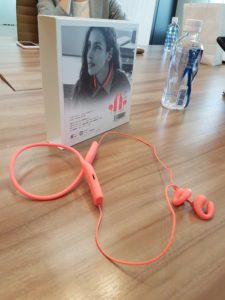
In addition to investors and advisors, we were given a chance to meet and watch several startups demo their products at Tokyo Business Camp Demo Day. With support from the government, universities and multinational companies – the startup bootcamp attracts companies in the FinTech, Robotics, IoT, AI as well as pharmaceutical, space and material industries.
It was the visit to office of Takuya Hirai, the minister of state for Information Technology that showcased the true purpose of our tour through a Tokyo that our hosts wanted us to see as Open, Innovative and Startup Friendly. In an office filled with models of robots and rocket ships, we heard, once again about the city’s plans to create a smart, open, safe and diverse environment. Continuing to promote the food, pop culture, general lifestyle faculties (world famous toilets ) that attract visitors, while creating a welcoming and inclusive society and work culture that would encourage global businesses to create a foothold in Japan. In between the presentations and the messaging, the minister put on a CD. The music was from his own band – a side hustle and hobby, where all sales go to charity. The song that played wasn’t going to win any awards, it had next to nothing to do with the government’s Invest Tokyo programme or even its ‘Cool Japan Strategy’. It was just music, created by an individual, who during the day wears a suit and walks the halls of a government building in an island country nestled in the Pacific Ocean.
 At the end of the day innovation is driven by individuals and teams who have ideas and make them into something new. Paint a picture and you are an artist. Cook dinner and you are a chef. Write a song and you are a musician. Create a business and you are an entrepreneur.
At the end of the day innovation is driven by individuals and teams who have ideas and make them into something new. Paint a picture and you are an artist. Cook dinner and you are a chef. Write a song and you are a musician. Create a business and you are an entrepreneur.
In 1964 Tokyo launched the Shinkansen. Tokyo will see itself on the world stage once again in 2020. One goal – bringing autonomous vehicles to the streets may happen. The developments for robo-cars have been well underway for years. A complementary goal – bringing entrepreneurs and startups founders to the city – has also been brewing, amidst the programmes, and investors, universities strategies and demo days. It is through this messy, challenging and exciting ecosystem that Japan is attempting to disrupt itself.

To learn more about Tokyo Metropolitan Government (TMG) policies and support:
TMG provides various support for foreign startups, such as: free consulting services, and
an accelerator program. The next round of support begins in April 2019. Please feel free to contact Access to Tokyo!









